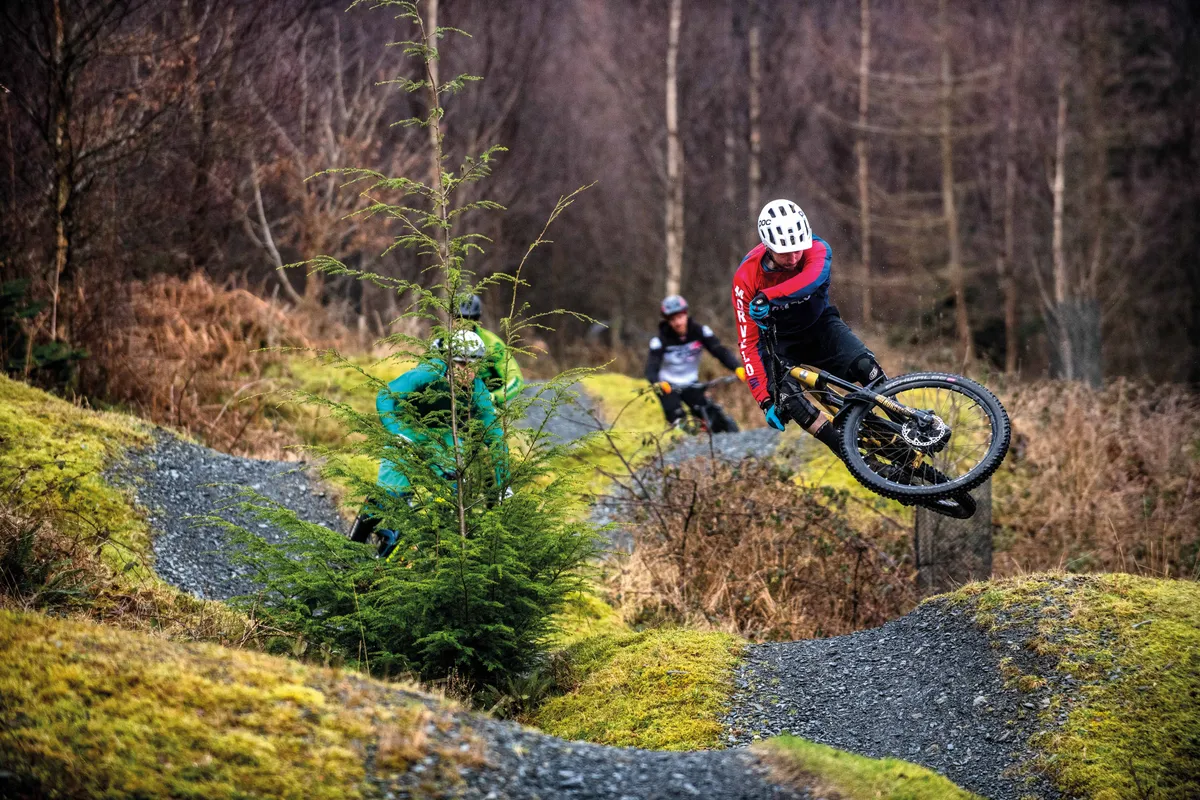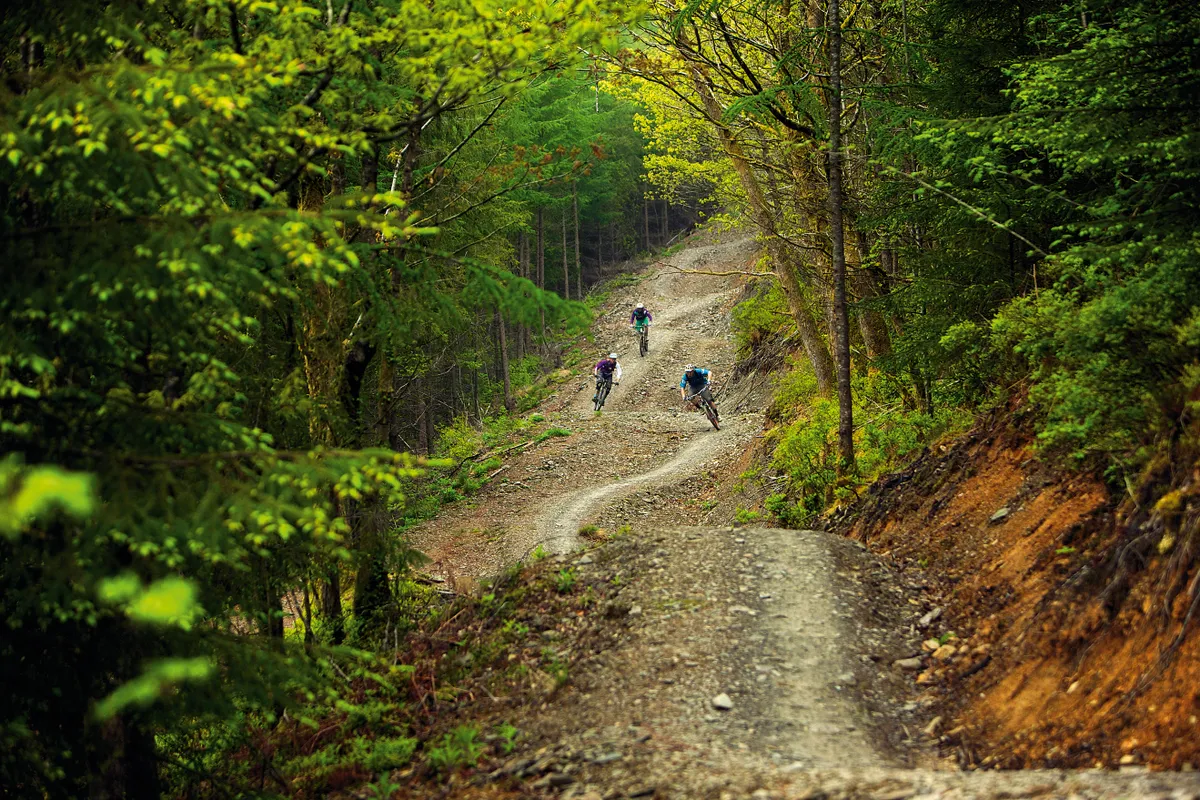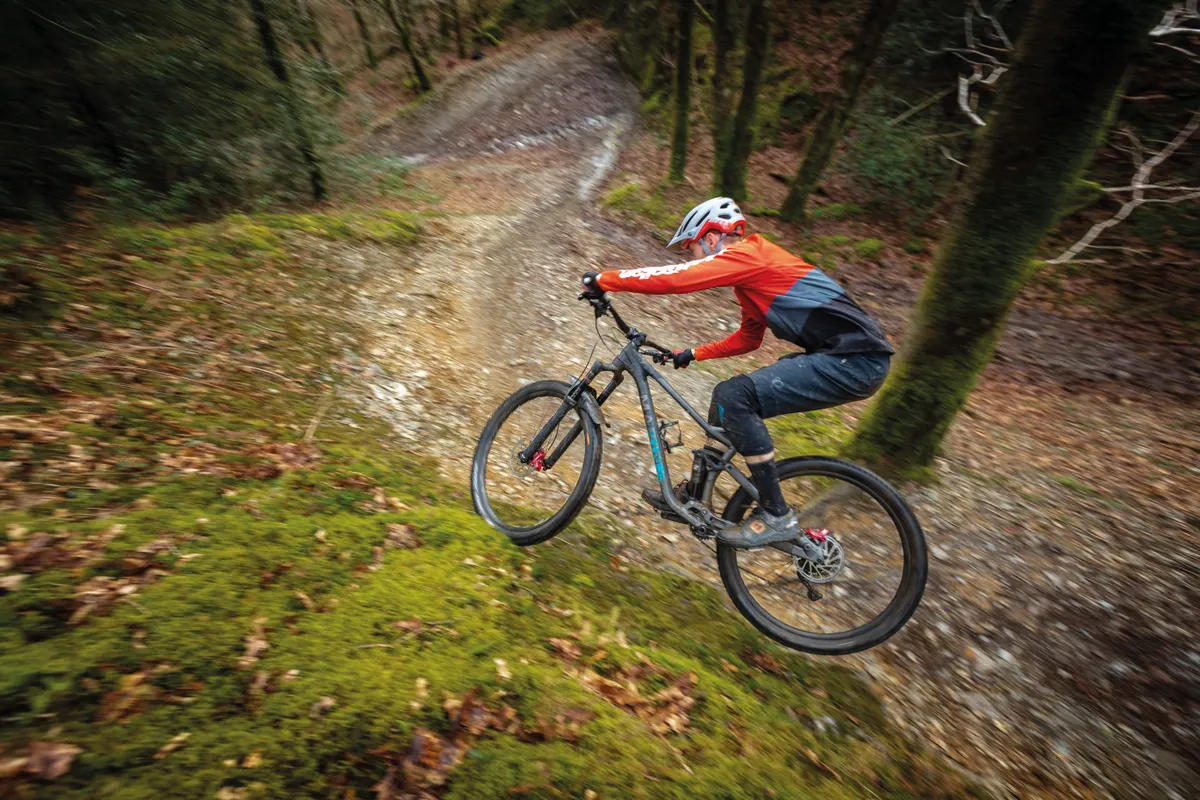Wales’ mountain bike trails are at existential risk after Natural Resources Wales announced 265 redundancies, with many job roles in trail centres under threat.
That's the view of Robin Grant, founder and chair of the UK MTB Trail Alliance.
The nation is famed for its mountain biking and is widely regarded as one of the best places to ride in the world.
Welsh landscapes and trails attract riders from across the UK and abroad, with events such as Red Bull Hardline adding to the country’s international mountain biking status.
However, mountain biking in Wales appears to have entered a risky chapter, with Natural Resources Wales (NRW) pulling funding away from recreational activities to focus on its statutory responsibilities.
Those familiar with Coed Y Brenin, the world's first mountain bike trail centre, may already be aware of the difficulties facing Welsh trail centres. Coed Y Brenin has received plenty of support for its cafe and visitor centre, with many in the local community coming out to protest the proposed changes.
To better understand the challenges facing mountain biking in Wales, we invited Grant onto the BikeRadar Podcast.
What is Natural Resources Wales?

According to its website, Natural Resources Wales (NRW) is responsible for creating, protecting and managing the majority of woodland in Wales.
Before devolution, this was the task of the Forestry Commission, which at the time was the largest land manager in the UK, responsible for more than 700,000 hectares.
As well as the forests, Natural Resources Wales finds itself responsible for water resources, environmental protection and regulation, and improving health and well-being.
The latter takes the form of promoting recreational activities, and connecting people with nature and the natural environment.
Unfortunately, with financial resources dwindling over the years, in part due to inflation, the government-sponsored agency has reduced its staff budget by £13m, according to the BBC. This is said to come at the cost of a proposed 265 jobs, centred mainly around the recreational aspect of Natural Resources Wales’ duties.
How is NRW’s dwindling budget impacting mountain bikers?

The effects of the NRW redundancies have already made headlines, with the BBC reporting that the future of Coed Y Brenin and Nant Yr Arian might be at risk.
This is exactly the kind of issue the UK MTB Trail Alliance takes on.
Grant says he started the alliance after “major landowners gathered to discuss the future of the trails on the Surrey Hills without involving mountain bikers in the conversation”.
The alliance shares knowledge and best practice in a bid to tackle bureaucracy surrounding bike trails, while aiming to build relationships with landowners, governing bodies and national governments.
Grant says the issues with the NRW could lead to the visitor centres in some of Wales’ best trail centres shutting shop.
The implications of this won’t just mean you’ll have to bring your own sandwich box and flask, it could mean there won’t be sufficient resources to manage the trail networks, without the staff to maintain and repair the tracks.
If this were to be the case and trails became damaged and unsafe, we could find ourselves in a position where these trails are closed due to the landowner's duty of care to visitors.
“This has the potential to see all of Wales’ legal trails close over time,” explains Grant, “unless another commercial or community partner can be found.”
Why are trail centres important?

Whether you ride in trail centres or not, they play an important role in mountain biking.
Trail centres not only offer consistent year-around riding, but they're usually the first places beginners go when they start mountain biking.
It can be hard to find places to ride when you’re starting out and trail centres provide an essential starting point in any rider's development.
Trail centres are also used to host vital aspects of mountain biking, such as coaching and bike rental, and often support more than just the bike trails surrounding them.
They also bring in valuable tourism to remote towns and villages, offering employment opportunities in hospitality around the centres.
What will be the impact on off-piste trails?

While not always legal, trail centres often play host to off-piste trails, with many sharing the same fire-road climbs used for official trails.
NRW has a more progressive attitude toward community-built/wild trails than other forestry organisations, implementing its Wild Trails Strategy, which recognises the benefits of the trails.
The strategy looks for community groups to maintain the trails, but requires them to become a recognised legal entity, agree to a contract with NRW and in some cases apply for planning permission with the local authority.
However, Grant says: “There is uncertainty about whether this will continue, as the jobs at risk of redundancy are the ones in contact with these community groups.”
Is there anything we can do?

At this point in time, the best course of action if you live in Wales is to contact a Member of the Senedd and outline how the action affects you and how important these trails are.
Grant concludes: “With decisions still in the balance, there’ll likely be more action to take further down the line.”





